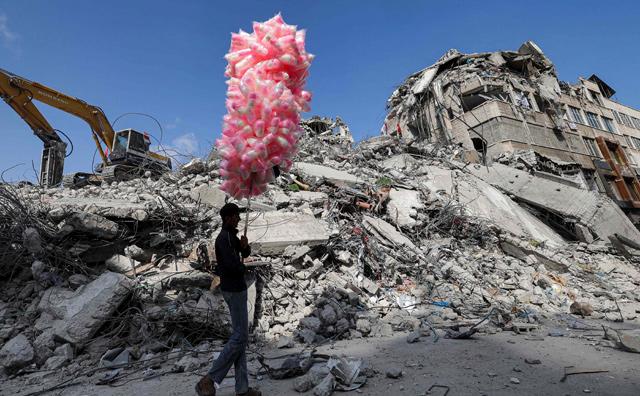- Local News
- Mon-2021-06-14 | 01:54 pm

In response to the recent Israeli aggression on Gaza, AlHadaf Institute, a local NGO, held an online workshop to assist traumatised Palestinians in the besieged enclave in their war against posttraumatic stress disorder (PTSD).
In an interview with The Jordan Times, Maran Maayah, president and founder of AlHadaf NGO said: "This workshop with our dear friends in Gaza was held by counsellors for children, mothers and social workers suffering from trauma.”
She also added that this workshop was held in response to the huge need for emotional assistance in Gaza, due to the lack of psychologists and counsellors on the ground.
"Since 2014, AlHadaf has helped individuals who have experienced neglect, including orphans, refugees, unsupervised and abandoned children,” added Maayah.
All the beneficiaries are provided with tailored programmes focusing on life-skills training as well as PTSD and art therapy for war survivors, according to Maayah.
In the PTSD workshop at AlHadaf Institute, traumatised children are given the space to use their words to express themselves freely. Maayah also explained how some children suffer from the inability to express themselves easily.
"In some cases, the children are left without suitable words to describe their trauma because of the intensity of it or because they never learned to share their feelings,” she said,
However, Maayah stressed the importance of telling one’s story as part of the healing process.
"Through the latest PTSD workshop with Palestinian children and their caregivers from Gaza, we highlighted the definition of trauma and how to recognise the difference between the symptoms of stress, anxiety and trauma,” Maayah said.
"We were able to provide the children with emergency skills to encourage them to share their feelings and their stories.”
A huge focus in the workshop was also put on the caregivers of the Palestinian children.
"We noticed that the caregivers and social workers who were also attending the training never checked if they were traumatised themselves,” added Maayah.
She mentioned the importance of providing such caregivers a safe and healthy space o share and express their feeling in order to avoid burnout.
Along with trained counsellors, the workshop assisted in dealing with PTSD from a medical perspective.
Ala Sweiss, a mental health expert, spoke at the workshop along with Maayah to offer the patients some tools to deal with trauma.
Sweiss added that recalling distressing events is often less emotionally upsetting when the attention is diverted in a safe environment.
"This allows patients to be exposed to the memories or thoughts without having a strong psychological response, which lessens the impact that the memories or thoughts have on them,” Sweiss said.
Both Maayah and Sweiss mentioned how the attendees of the workshop were longing for proper diagnosis and accessible tools for a better healing process against PTSD.
Understanding trauma, defining its symptoms and its effect on their wellbeing made a big difference in their perspective and approach towards dealing with their trauma, Sweiss added.









